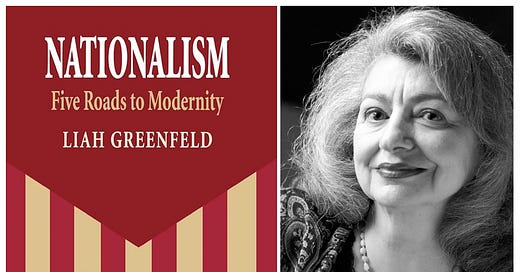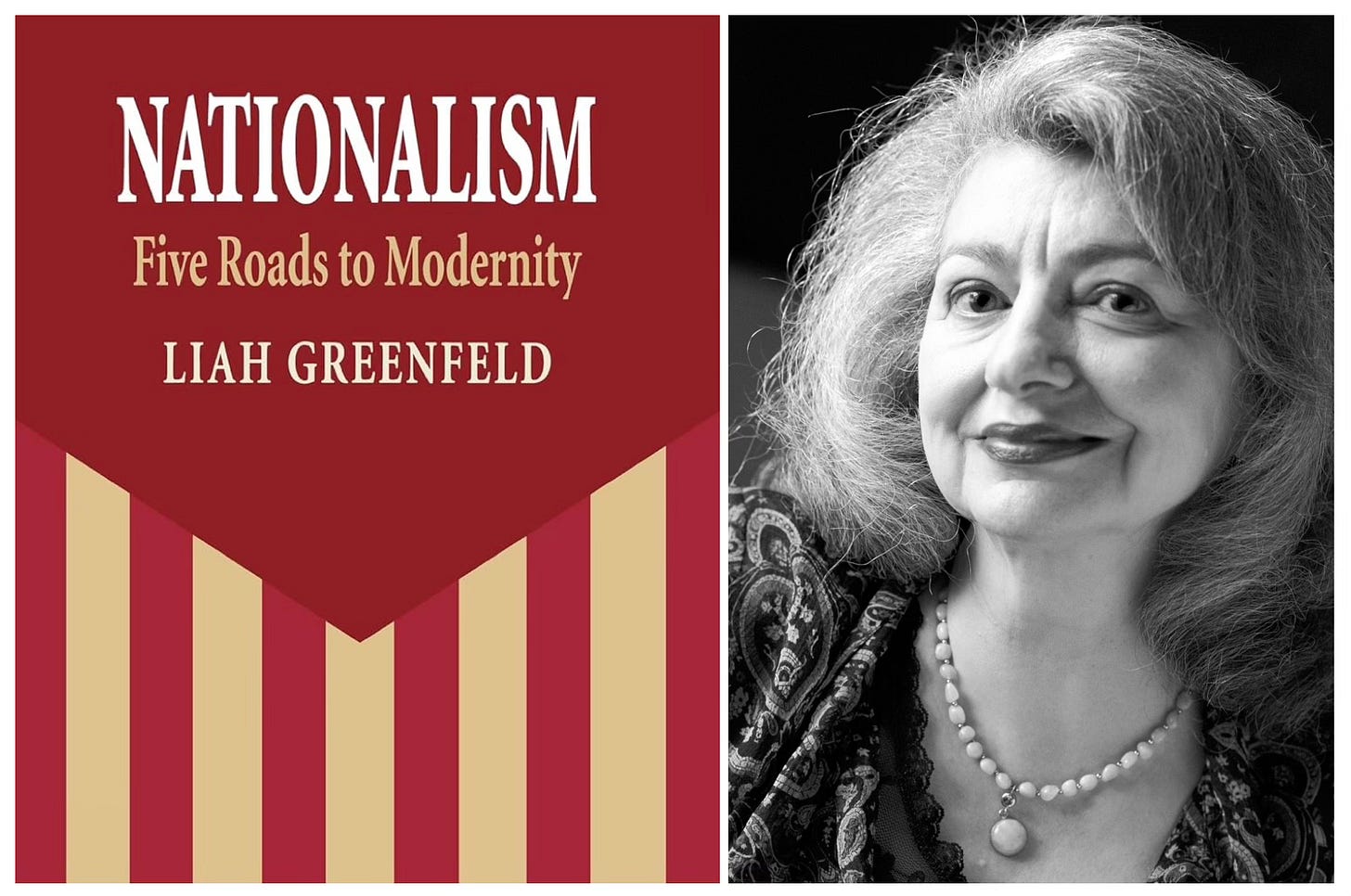For American elites, President Donald Trump and his supporters are fascists. This is, for them, primarily by definition. Trump and his supporters are nationalists, and nationalism is equivalent to fascism.
But for the iconoclastic Israeli-American Russian-Jewish sociologist, Liah Greenfeld, this is ridiculous. Nationalism is a liberating “form of consciousness,” she says. And that new form of consciousness is fundamentally democratic. “The nation is a sovereign community of fundamentally equal members,” explained Greenfeld to me in a new podcast.
Greenfeld, professor emeritus at Boston University, is the author of a landmark book, Nationalism: Five Roads to Modernity.
Before nationalism, Western European societies were divided into three orders of human beings “that were as different from each other as species of animals,” she explained. “They could not mix. There was the upper class whose responsibility was to defend Christendom with a sword from all attacks. In the middle was the clergy, the mediators between earth and the heavens. And the huge majority of the population, like 90%, the lower order of laborers, was called the people. Their lives had no value. They had no dignity whatsoever.”
What nationalism did was turn the majority into human beings who deserved respect. “When nationalism emerged,” said Greenfeld, “this whole huge population was elevated to the dignity of the elite.”
What does she mean by “dignity”?
“You can think about yourself and some dignifying moment in your life,” she said. “Some memory or some moment when you experience dignity. Go back to it and remember it. And you will see that you have a very special sensation, physical sensation. Everyone has the sensation when one experiences dignity because the same hormones activated. You feel bigger. You feel your chest expanding. Your back straightens.”
Giving five million English peasants their dignity turned out to be revolutionary, argues Greenfeld, unleashing the Enlightenment, scientific, and industrial revolutions. The reason is that dignity gives people energy. “They experience dignity and it is addictive like alcohol. Having experienced it, they will never give it up.”
“A nation is a secular community,” she explained. “In a religious community — and here we are talking about Christianity — only God is sovereign. And now we suddenly have the community, the living members of that community, who are sovereign…. Defining and viewing the political community as a sovereign community of fundamentally equal members implies democracy. So, with nationalism, 500 years ago, democracy enters history. This means that every nation is, by definition, a democracy.”
Greenfeld’s argument may seem strange. Aren’t there many examples of nationalist nations that aren’t democratic?













